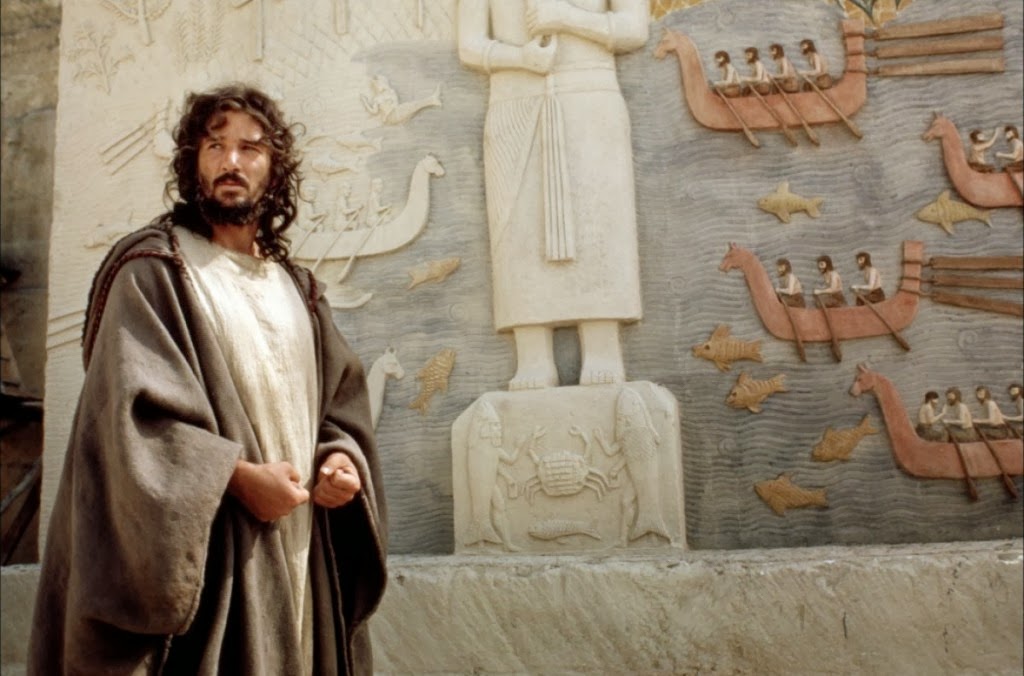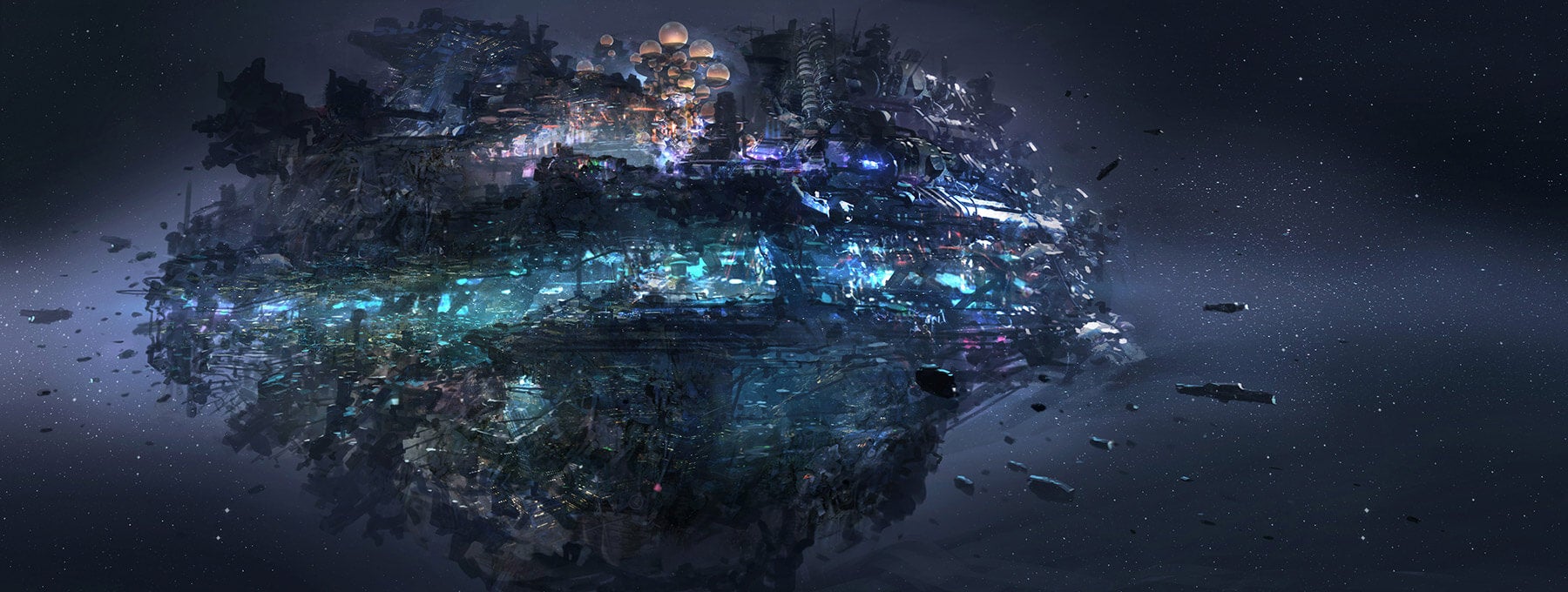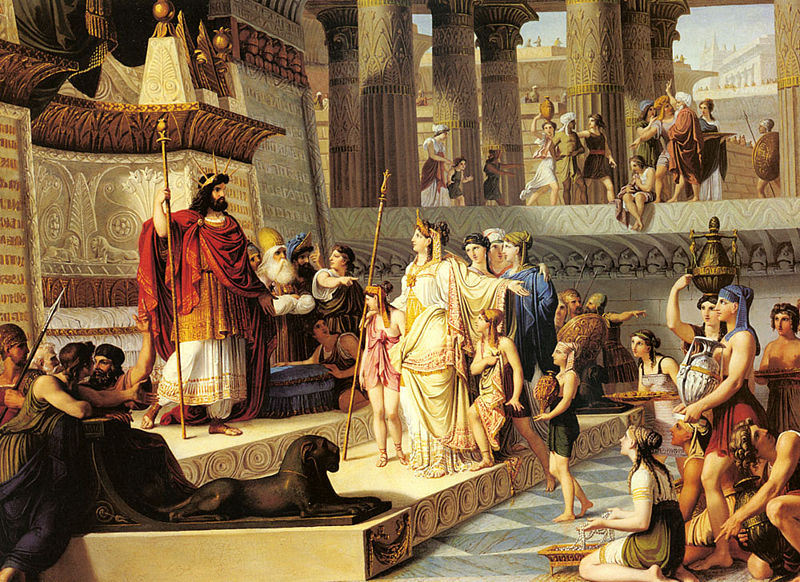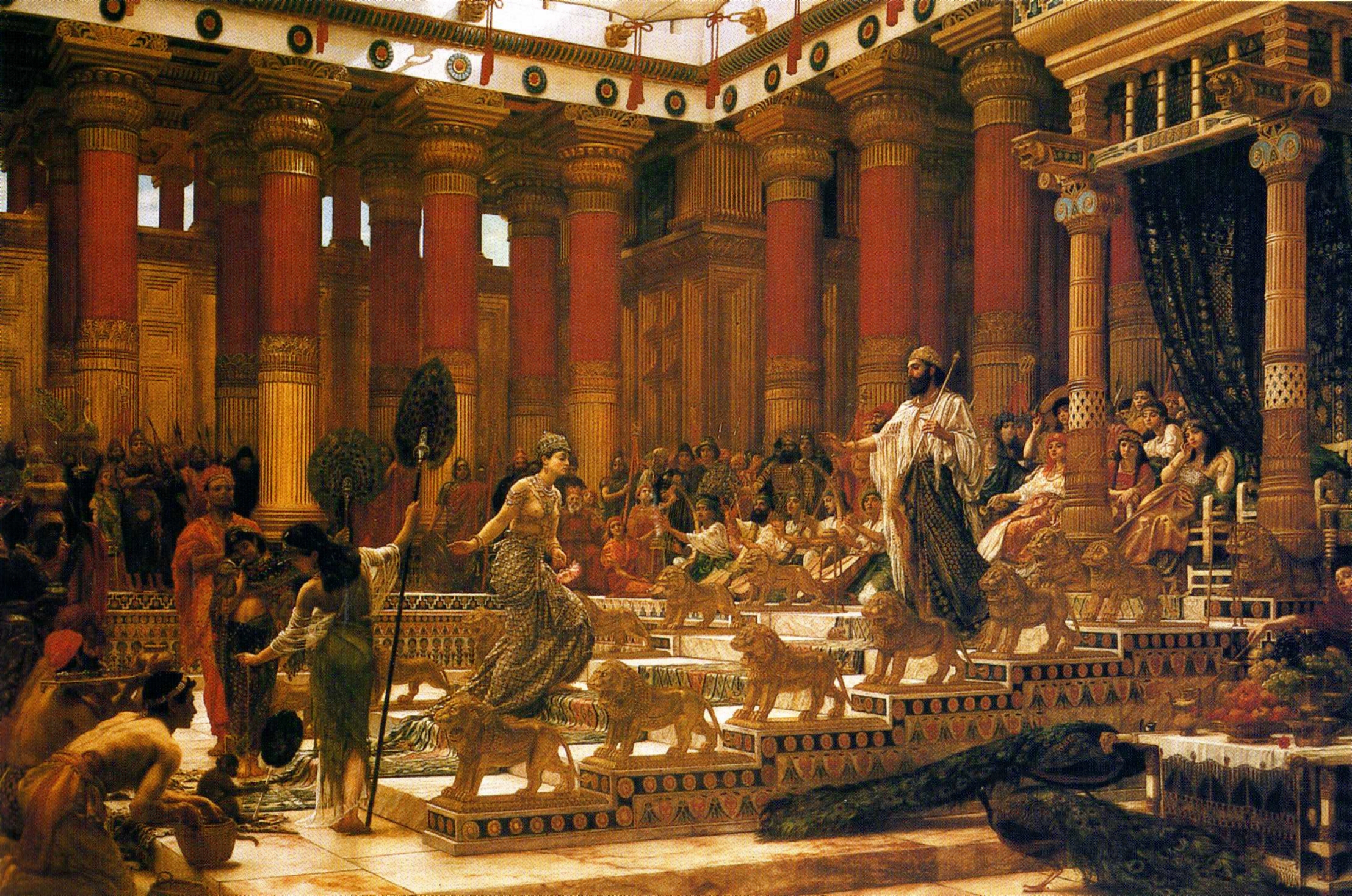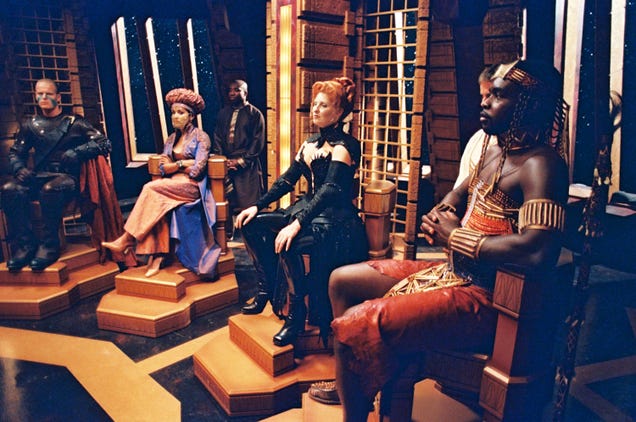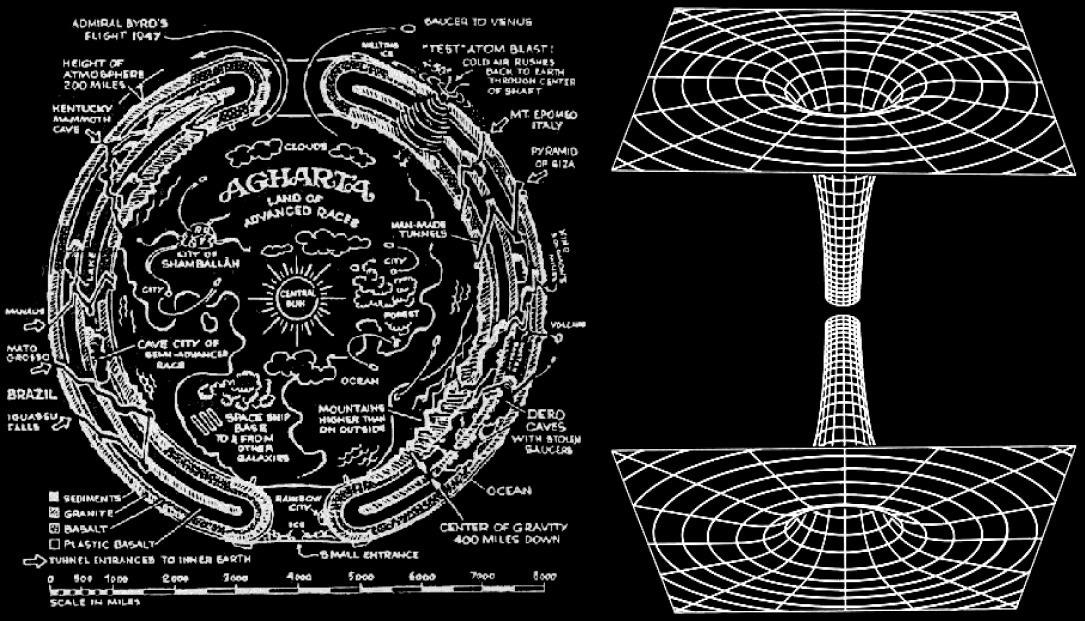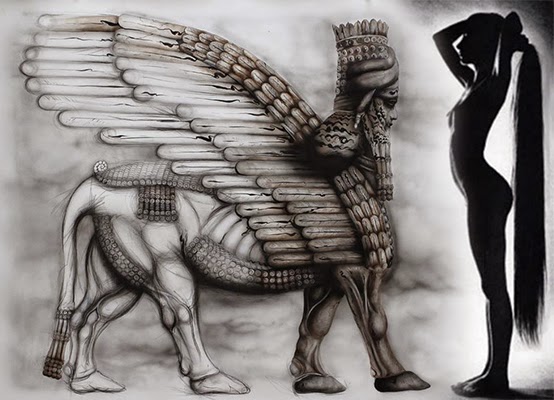
Carefully and prayerfully consider the 1963 movie 'It's a Mad, Mad, Mad, Mad World' regarding the History and Future of Earth!! I reference older books and movies to avoid being swept-away by Supercomputers, Artificial-Intelligence, Robotic-Aliens, Robotic-Humans, Witches, Nazis, Masons, Jesuits, Agents, et al. I suspect that this thing might be nastier than we are capable of imagining, and I'm not trying to lure anyone into a booby-trapped rabbit-hole, even if I'm already down to the 'Aliens-Only' level of the 'Deep-Underground Rabbit-Hole'. It must NEVER Be Forgotten That Raven Scolded "The Rabbit-Hole Mostly Goes Right Up Your @$$!!" It Must Always Be Remembered That "The KGB Read the KJV!!" I find it highly-interesting that The SDA Bible Commentary was completed right-around the same-time (1957) as Questions On Doctrine was being written!! Was this punishment and/or a diversionary-tactic?? I continue to notice that a liberal SDA website contained virtually no discussion of a fine series of articles on The SDA Bible Commentary!! One of my rather-benign comments was deleted without explanation!! The SDA Bible Commentary is rather-boring but highly-scholarly!! Here is an interesting-approach to All of the Above:
1. The SDA Bible Commentary -- Volumes 3 and 4 (1 Chronicles to Malachi).
2. Patriarchs and Prophets -- Prophets and Kings -- Desire of Ages (All by Ellen White).
3. Daniel 8:14, the Day of Atonement, and the Investigative Judgment (Desmond Ford).
You'd have to be deeply-into this controversial-stuff to get what I'm getting-at!! What Would the Nasty Little-Horn Say??
Thank-you Eartheart. I probably understood 50% of what you posted. That Last-Generation Perfection thing actually has a place in my theological-thinking -- but not in the way that most Perfectionists think of it. Some of them are just the opposite of Perfect!! What Would Kevin Paulson Say?? You haven't lived until you've argued with Kevin!! What Would Mark Martin Say?? What Would Nichol Hall Say?? What Would Gane Say?? I keep thinking that a Marriage of Last-Generation Perfection of Character -- and the Human-Potential Movement -- is a Match Made in Heaven!! Seriously, has there been ANYONE who has mastered Patriarchs and Prophets -- Prophets and Kings -- and Desire of Ages -- right down to the thinking and speaking style manifested therein -- perhaps in a Vala Mal Doran, PhD manner -- if you know what I mean??!! Think about Elizabeth Taylor as Cleopatra (1963) talking with EllenSpeak!!! What is the True-Origin of the Ellen White Editorial-Voice in her Post-1890 Material?? M. L. Andreasen had unprecedented-access to Ellen White and her writings at Elmshaven, in St. Helena, California (toward the end of her life). His bias was that she couldn't have possibly written her writings, because of her lack of education -- and her book's complexity and sophistication. Andreasen's first-book (in 1929, I believe) was Isaiah: The Gospel Prophet. Why did he choose Isaiah (in light of his close-association with Ellen White)?? White's last book was Prophets and Kings (which prominently features Isaiah). I've taken All of the Above out of the church -- and placed it in a Non-Christian Science-Fictional Context.Eartheart wrote:
just returning from the great eastern rabbithunt on monkeyplanet om shree hanumaji
i am finding out that the great flood of words is still engulfing this creative thoughtsphere on our solarsystem governance, highjacked by well known terrorist jawohl et al pseudonyms, known for the genocide and holocaustic mindset of the unhappy infidels!!! Man of man Oxy
I wanted to see this propaganda smeer RISEN 2016 now, but this has to wait till i am through with this renewed onslaught of OT commentators and their 3.kind types...

: will not condem those Paulinistas and other side figurines caught up in the Lordly jesus & jeshua great mystery and wonder show, but to giveit a go andnoshot at all, lets consider and see what Dr Oxy would say:
Under duress of interogation and folter by countless religious extremists through the collectiv subconsciousness channels and divers neural circuit blockers i had to become acquainted with those simple but excidingly boring matters at mind of your proposed proposition...
As most is irrelevant in connection with the second serving or cumming (which is not only a male idea
), i have to really hard scrape for the essential templates in those Luke Ford / Desmond Ford / Meredith Kline / M.L. Andreasen / Ellen White Commentaries, but by resonant Cosmix it reveals what mass/mess/miss out the Spirit divinated in their respective lifes...
Ellen White forcefully drives home the point that Jesus must come in a humanity that is like ours. Christ reaches us 'where we are.' The ladder rests on the earth ; not on an insulated, shock absorber-outfitted platform above the earth. He 'took our nature;' His 'humanity reaches us.
See timely with the just ongoing resurrection we can affirm again, there is no Jesus extra, no God outside and no known religion than your own highest feelings of communion and your loving focus on them!!!
So there is no thing or person to idolize or follow, the whole indoctrination is from level 0 civilisation planets as every cat can tell you...
There is the bit of obscure wonder while wandering without beeing lost in the holo of divinespirit and as it is pervert to discuss the face/figurine of HisHer appearance, it might be the essence of those writers stupid fascinations with the false understood or mistranslated OT& NT poetic litany...
So: Someone under the divine supraordeal of Grace (say forced orgasm?)w ouldnt question and divide what HeShe witnessed or was made to create, things go way to fast than tohave time for such silly games and namequizzes, parables and tales from the clean shead
Earnestly i couldnt enter some churches because of their molded stench and wouldnt touch the old american paperbooks laid out in adventist prayerhalls (u know i love trees and those books are evil in content and production habitual) even with fbi-gloves to secure evidence of their counterproductive methodologic. You see on yourself what the false priest has to go through to reach atonement again, OxydOxydOxyd...by calling constantly for humility, by bringing us daily to our knees, by ending with us washing each others’ feet and sharing in Christ’s broken body and shed blood, showed us that while we can continue to discuss and study, the way forward is as brothers and sisters who have a shared message to tell to the world.

christian BS observed in your community?
U got your statement of 28 Fundamental Beliefs. They hold together our core identity in terms of faith and doctrine. Resist any tendency to pluck out strains from any of these and make them into a separate and new doctrine which will divide the Living...
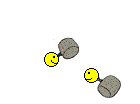
we can gain victory, but that will not be by settling the precise human nature of Christ; It will not be by the power of His example; it will be by the “power of his resurrection” (pointing at the holo, where the child is undivided from the parental love and got wholespirit wholeheartedly x-pressed)
While the intent expressed in such books like Andreasen’s The Sanctuary Service and QOD about "original"sin and "inheritance" of christ which is ours ect. may fascinate readers of "talking with god" english edition, we should !hear and know! like advertized in the secret doctrines...
Is it a dutyto fight a crusade against paedophiles or clean thetemple of moneychangers and digitalshadows of hitlers???



What is relevant 4 your revelation is the here mentioned holo of livinginspirit as overshadowed entety or devkid

In my incarnation those forces from high up gave my all of the existing details without asking for it, inscribing thought/freq processing and problem resolving reactions intothat akashic which guides humanity. While i witnessed a kind of following in the footsteps by "others" of the same, countries and cultures, minds and procedures i can just bear the war which is still fought on the nacked fronts. That must have been the same since the introduction of the reverse genetix by orions minions and AI protocol into our living webb... And it gives the same free open door of Loove like ever!!!
But Christ reaches us where we are. He took our nature and overcame, that we through taking His nature might overcome....By His humanity He reaches us." ( Desire of Ages , pp. 311,312)
Learning certain technix from DevSpirit is on everybodies agenda! It is between the letters and in the top plane before we get asked and heared. Celebrating the wonder of discipleship is insane like a jihad on GMO or NWO. Smiling at your own miracle resurrection is sane, and in trust we all follow and invent and create patterns, which are part of thegreat celestine synphony of cutting through the interspecies BS and uniting the different olarsystems, so them can follow up the divine will/plan...
Hope i could funq with Toth&Seth in you a bit, see you in the nightly ether and now i have Hazel+cinnamoon+vanille+cardamoonCoffee and italian sweets and watch "Risen2016"thanx 4 your updted readinglist, extracted all relevant ideas in 44 seconds and stay happy
http://www.whiteestate.org/books/pp/pp44.html The Israelites deeply mourned for their departed leader, and thirty days were devoted to special services in honor of his memory. Never till he was taken from them had they so fully realized the value of his wise counsels, his parental tenderness, and his unswerving faith. With a new and deeper appreciation they recalled the precious lessons he had given while still with them.
Moses was dead, but his influence did not die with him. It was to live on, reproducing itself in the hearts of his people. The memory of that holy, unselfish life would long be cherished, with silent, persuasive power molding the lives even of those who had neglected his living words. As the glow of the descending sun lights up the mountain peaks long after the sun itself has sunk behind the hills, so the works of the pure, the holy, and the good shed light upon the world long after the actors themselves have passed away. Their works, their words, their example, will forever live. "The righteous shall be in everlasting remembrance." Psalm 112:6.
While they were filled with grief at their great loss, the people knew that they were not left alone. The pillar of cloud rested over the tabernacle by day, and the pillar of fire by night, an assurance that God would still be their guide and helper if they would walk in the way of His commandments.
Joshua was now the acknowledged leader of Israel. He had been known chiefly as a warrior, and his gifts and virtues were especially valuable at this stage in the history of his people. Courageous, resolute, and persevering, prompt, incorruptible, unmindful of selfish interests in his care for those committed to his charge, and, above all, inspired by a living faith in God--such was the character of the man divinely chosen to conduct the armies of Israel in their entrance upon the Promised Land. During the sojourn in the wilderness he had acted as prime minister to Moses, and by his quiet, unpretending fidelity, his steadfastness when others wavered, his firmness to maintain the truth in the midst of danger, he had given evidence of his fitness to succeed Moses, even before he was called to the position by the voice of God.
It was with great anxiety and self-distrust that Joshua had looked forward to the work before him; but his fears were removed by the assurance of God, "As I was with Moses, so I will be with thee: I will not fail thee, nor forsake thee. . . . Unto this people shalt thou divide for an inheritance the land, which I sware unto their fathers to give them." "Every place that the sole of your foot shall tread upon, that have I given unto you, as I said unto Moses." To the heights of Lebanon in the far distance, to the shores of the Great Sea, and away to the banks of the Euphrates in the east--all was to be theirs.
To this promise was added the injunction, "Only be thou strong and very courageous, that thou mayest observe to do according to all the law, which Moses My servant commanded." The Lord's direction was, "This book of the law shall not depart out of thy mouth; but thou shalt meditate therein day and night;" "turn not from it to the right hand or to the left;" "for then thou shalt make thy way prosperous, and then thou shalt have good success."
The Israelites were still encamped on the east side of Jordan, which presented the first barrier to the occupation of Canaan. "Arise," had been the first message of God to Joshua, "go over this Jordan, thou, and all this people, unto the land which I do give to them." No instruction was given as to the way in which they were to make the passage. Joshua knew, however, that whatever God should command, He would make a way for His people to perform, and in this faith the intrepid leader at once began his arrangements for an advance.
A few miles beyond the river, just opposite the place where the Israelites were encamped, was the large and strongly fortified city of Jericho. This city was virtually the key to the whole country, and it would present a formidable obstacle to the success of Israel. Joshua therefore sent two young men as spies to visit this city and ascertain something as to its population, its resources, and the strength of its fortifications. The inhabitants of the city, terrified and suspicious, were constantly on the alert, and the messengers were in great danger. They were, however, preserved by Rahab, a woman of Jericho, at the peril of her own life. In return for her kindness they gave her a promise of protection when the city should be taken.
The spies returned in safety with the tidings, "Truly the Lord hath delivered into our hands all the land; for even all the inhabitants of the country do faint because of us." It had been declared to them in Jericho, "We have heard how the Lord dried up the water of the Red Sea for you, when ye came out of Egypt; and what ye did unto the two kings of the Amorites, that were on the other side Jordan, Sihon and Og, whom ye utterly destroyed. And as soon as we had heard these things, our hearts did melt, neither did there remain any more courage in any man, because of you: for the Lord your God, He is God in heaven above, and in earth beneath."
Orders were now issued to make ready for an advance. The people were to prepare a three days' supply of food, and the army was to be put in readiness for battle. All heartily acquiesced in the plans of their leader and assured him of their confidence and support: "All that thou commandest us we will do, and whithersoever thou sendest us, we will go. According as we hearkened unto Moses in all things, so will we hearken unto thee: only the Lord thy God be with thee, as He was with Moses."
Leaving their encampment in the acacia groves of Shittim, the host descended to the border of the Jordan. All knew, however, that without divine aid they could not hope to make the passage. At this time of the year--in the spring season--the melting snows of the mountains had so raised the Jordan that the river overflowed its banks, making it impossible to cross at the usual fording places. God willed that the passage of Israel over Jordan should be miraculous. Joshua, by divine direction, commanded the people to sanctify themselves; they must put away their sins and free themselves from all outward impurity; "for tomorrow," he said, "the Lord will do wonders among you." The "ark of the covenant" was to lead the way before the host. When they should see the token of Jehovah's presence, borne by the priests, remove from its place in the center of the camp, and advance toward the river, then they were to remove from their place, "and go after it.' The circumstances of the passage were minutely foretold; and said Joshua, "Hereby ye shall know that the living God is among you, and that He will without fail drive out from before you the Canaanites. . . . Behold, the ark of the covenant of the Lord of all the earth passeth over before you into Jordan."
At the appointed time began the onward movement, the ark, borne upon the shoulders of the priests, leading the van. The people had been directed to fall back, so that there was a vacant space of more than half a mile about the ark. All watched with deep interest as the priests advanced down the bank of the Jordan. They saw them with the sacred ark move steadily forward toward the angry, surging stream, till the feet of the bearers were dipped into the waters. Then suddenly the tide above was swept back, while the current below flowed on, and the bed of the river was laid bare.
At the divine command the priests advanced to the middle of the channel and stood there while the entire host descended and crossed to the farther side. Thus was impressed upon the minds of all Israel the fact that the power that stayed the waters of Jordan was the same that had opened the Red Sea to their fathers forty years before. When the people had all passed over, the ark itself was borne to the western shore. No sooner had it reached a place of security, and "the soles of the priests' feet were lifted up unto the dry land," than the imprisoned waters, being set free, rushed down, a resistless flood, in the natural channel of the stream.
Coming generations were not to be without a witness to this great miracle. While the priests bearing the ark were still in the midst of Jordan, twelve men previously chosen, one from each tribe, took up each a stone from the river bed where the priests were standing, and carried it over to the western side. These stones were to be set up as a monument in the first camping place beyond the river. The people were bidden to repeat to their children and children's children the story of the deliverance that God had wrought for them, as Joshua said, "That all the people of the earth might know the hand of the Lord, that it is mighty: that ye might fear the Lord your God forever."
The influence of this miracle, both upon the Hebrews and upon their enemies, was of great importance. It was an assurance to Israel of God's continued presence and protection--an evidence that He would work for them through Joshua as He had wrought through Moses. Such an assurance was needed to strengthen their hearts as they entered upon the conquest of the land--the stupendous task that had staggered the faith of their fathers forty years before. The Lord had declared to Joshua before the crossing, "This day will I begin to magnify thee in the sight of all Israel, that they may know that, as I was with Moses, so I will be with thee." And the result fulfilled the promise. "On that day the Lord magnified Joshua in the sight of all Israel; and they feared him, as they feared Moses, all the days of his life."
This exercise of divine power in behalf of Israel was designed also to increase the fear with which they were regarded by the surrounding nations, and thus prepare the way for their easier and complete triumph. When the tidings that God had stayed the waters of Jordan before the children of Israel, reached the kings of the Amorites and of the Canaanites, their hearts melted with fear. The Hebrews had already slain the five kings of Midian, the powerful Sihon, king of the Amorites, and Og of Bashan, and now the passage over the swollen and impetuous Jordan filled all the surrounding nations with terror. To the Canaanites, to all Israel, and to Joshua himself, unmistakable evidence had been given that the living God, the King of heaven and earth, was among His people, and that He would not fail them nor forsake them.
A short distance from Jordan the Hebrews made their first encampment in Canaan. Here Joshua "circumcised the children of Israel;" "and the children of Israel encamped in Gilgal, and kept the Passover." The suspension of the rite of circumcision since the rebellion at Kadesh had been a constant witness to Israel that their covenant with God, of which it was the appointed symbol, had been broken. And the discontinuance of the Passover, the memorial of their deliverance from Egypt, had been an evidence of the Lord's displeasure at their desire to return to the land of bondage. Now, however, the years of rejection were ended. Once more God acknowledged Israel as His people, and the sign of the covenant was restored. The rite of circumcision was performed upon all the people who had been born in the wilderness. And the Lord declared to Joshua, "This day have I rolled away the reproach of Egypt from off you," and in allusion to this the place of their encampment was called Gilgal, "a rolling away," or "rolling off."
Heathen nations had reproached the Lord and His people because the Hebrews had failed to take possession of Canaan, as they expected, soon after leaving Egypt. Their enemies had triumphed because Israel had wandered so long in the wilderness, and they had mockingly declared that the God of the Hebrews was not able to bring them into the Promised Land. The Lord had now signally manifested His power and favor in opening the Jordan before His people, and their enemies could no longer reproach them.
"On the fourteenth day of the month at even," the Passover was celebrated on the plains of Jericho. "And they did eat of the old corn of the land on the morrow after the Passover, unleavened cakes, and parched corn in the selfsame day. And the manna ceased on the morrow after they had eaten of the old corn of the land; neither had the children of Israel manna any more; but they did eat of the fruit of the land of Canaan." The long years of their desert wanderings were ended. The feet of Israel were at last treading the Promised Land.
http://www.whiteestate.org/books/pp/pp45.html The Hebrews had entered Canaan, but they had not subdued it; and to human appearance the struggle to gain possession of the land must be long and difficult. It was inhabited by a powerful race, who stood ready to oppose the invasion of their territory. The various tribes were bound together by the fear of a common danger. Their horses and iron battle chariots, their knowledge of the country, and their training in war, would give them great advantage. Furthermore, the country was guarded by fortresses--"cities great and fenced up to heaven." Deuteronomy 9:1. Only in the assurance of a strength not their own could the Israelites hope for success in the impending conflict.
One of the strongest fortresses in the land--the large and wealthy city of Jericho--lay just before them, but a little distance from their camp at Gilgal. On the border of a fertile plain abounding with the rich and varied productions of the tropics, its palaces and temples the abode of luxury and vice, this proud city, behind its massive battlements, offered defiance to the God of Israel. Jericho was one of the principal seats of idol worship, being especially devoted to Ashtaroth, the goddess of the moon. Here centered all that was vilest and most degrading in the religion of the Canaanites. The people of Israel, in whose minds were fresh the fearful results of their sin at Beth-peor, could look upon this heathen city only with disgust and horror.
To reduce Jericho was seen by Joshua to be the first step in the conquest of Canaan. But first of all he sought an assurance of divine guidance, and it was granted him. Withdrawing from the encampment to meditate and to pray that the God of Israel would go before His people, he beheld an armed warrior, of lofty stature and commanding presence, "with his sword drawn in his hand." To Joshua's challenge, "Art thou for us, or for our adversaries?" the answer was given, "As Captain of the host of the Lord am I now come." The same command given to Moses in Horeb, "Loose thy shoe from off thy foot; for the place whereon thou standest is holy," revealed the true character of the mysterious stranger. It was Christ, the Exalted One, who stood before the leader of Israel. Awe-stricken, Joshua fell upon his face and worshiped, and heard the assurance, "I have given into thine hand Jericho, and the king thereof, and the mighty men of valor," and he received instruction for the capture of the city.
In obedience to the divine command Joshua marshaled the armies of Israel. No assault was to be made. They were simply to make the circuit of the city, bearing the ark of God and blowing upon trumpets. First came the warriors, a body of chosen men, not now to conquer by their own skill and prowess, but by obedience to the directions given them from God. Seven priests with trumpets followed. Then the ark of God, surrounded by a halo of divine glory, was borne by priests clad in the dress denoting their sacred office. The army of Israel followed, each tribe under its standard. Such was the procession that compassed the doomed city. No sound was heard but the tread of that mighty host and the solemn peal of the trumpets, echoing among the hills and resounding through the streets of Jericho. The circuit completed, the army returned in silence to their tents, and the ark was restored to its place in the tabernacle.
With wonder and alarm the watchmen of the city marked every move, and reported to those in authority. They knew not the meaning of all this display; but when they beheld that mighty host marching around their city once each day, with the sacred ark and the attendant priests, the mystery of the scene struck terror to the hearts of priest and people. Again they would inspect their strong defenses, feeling certain they could successfully resist the most powerful attack. Many ridiculed the thought that any harm could come to them through these singular demonstrations. Others were awed as they beheld the procession that each day wound about the city. They remembered that the Red Sea had once parted before this people, and that a passage had just been opened for them through the river Jordan. They knew not what further wonders God might work for them.
For six days the host of Israel made the circuit of the city. The seventh day came, and with the first dawn of light, Joshua marshaled the armies of the Lord. Now they were directed to march seven times around Jericho, and at a mighty peal from the trumpets to shout with a loud voice, for God had given them the city.
The vast army marched solemnly around the devoted walls. All was silent, save the measured tread of many feet, and the occasional sound of the trumpet, breaking the stillness of the early morning. The massive walls of solid stone seemed to defy the siege of men. The watchers on the walls looked on with rising fear, as, the first circuit ended, there followed a second, then a third, a fourth, a fifth, a sixth. What could be the object of these mysterious movements? What mighty event was impending? They had not long to wait. As the seventh circuit was completed, the long procession paused. The trumpets, which for an interval had been silent, now broke forth in a blast that shook the very earth. The walls of solid stone, with their massive towers and battlements, tottered and heaved from their foundations, and with a crash fell in ruin to the earth. The inhabitants of Jericho were paralyzed with terror, and the hosts of Israel marched in and took possession of the city.
The Israelites had not gained the victory by their own power; the conquest had been wholly the Lord's; and as the first fruits of the land, the city, with all that it contained, was to be devoted as a sacrifice to God. It was to be impressed upon Israel that in the conquest of Canaan they were not to fight for themselves, but simply as instruments to execute the will of God; not to seek for riches or self-exaltation, but the glory of Jehovah their King. Before the capture the command had been given, "The city shall be accursed, even it, and all that are therein." "Keep yourselves from the accursed thing, lest ye make yourselves accursed . . . and make the camp of Israel a curse, and trouble it."
All the inhabitants of the city, with every living thing that it contained, "both man and woman, young and old, and ox, and sheep, and ass," were put to the sword. Only faithful Rahab, with her household, was spared, in fulfillment of the promise of the spies. The city itself was burned; its palaces and temples, its magnificent dwellings with all their luxurious appointments, the rich draperies and the costly garments, were given to the flames. That which could not be destroyed by fire, "the silver, and the gold, and the vessels of brass and of iron," was to be devoted to the service of the tabernacle. The very site of the city was accursed; Jericho was never to be rebuilt as a stronghold; judgments were threatened upon anyone who should presume to restore the walls that divine power had cast down. The solemn declaration was made in the presence of all Israel, "Cursed be the man before the Lord, that riseth up and buildeth this city Jericho: he shall lay the foundation thereof in his first-born, and in his youngest son shall he set up the gates of it."
The utter destruction of the people of Jericho was but a fulfillment of the commands previously given through Moses concerning the inhabitants of Canaan: "Thou shalt smite them, and utterly destroy them." Deuteronomy 7:2. "Of the cities of these people, . . . thou shalt save alive nothing that breatheth." Deuteronomy 20:16. To many these commands seem to be contrary to the spirit of love and mercy enjoined in other portions of the Bible, but they were in truth the dictates of infinite wisdom and goodness. God was about to establish Israel in Canaan, to develop among them a nation and government that should be a manifestation of His kingdom upon the earth. They were not only to be inheritors of the true religion, but to disseminate its principles throughout the world. The Canaanites had abandoned themselves to the foulest and most debasing heathenism, and it was necessary that the land should be cleared of what would so surely prevent the fulfillment of God's gracious purposes.
The inhabitants of Canaan had been granted ample opportunity for repentance. Forty years before, the opening of the Red Sea and the judgments upon Egypt had testified to the supreme power of the God of Israel. And now the overthrow of the kings of Midian, of Gilead and Bashan, had further shown that Jehovah was above all gods. The holiness of His character and His abhorrence of impurity had been evinced in the judgments visited upon Israel for their participation in the abominable rites of Baalpeor. All these events were known to the inhabitants of Jericho, and there were many who shared Rahab's conviction, though they refused to obey it, that Jehovah, the God of Israel, "is God in heaven above, and upon the earth beneath." Like the men before the Flood, the Canaanites lived only to blaspheme Heaven and defile the earth. And both love and justice demanded the prompt execution of these rebels against God and foes to man.
How easily the armies of heaven brought down the walls of Jericho, that proud city whose bulwarks, forty years before, had struck terror to the unbelieving spies! Thy Mighty One of Israel had said, "I have given into thine hand Jericho." Against that word human strength was powerless.
"By faith the walls of Jericho fell down." Hebrews 11:30. The Captain of the Lord's host communicated only with Joshua; He did not reveal Himself to all the congregation, and it rested with them to believe or doubt the words of Joshua, to obey the commands given by him in the name of the Lord, or to deny his authority. They could not see the host of angels who attended them under the leadership of the Son of God. They might have reasoned: "What unmeaning movements are these, and how ridiculous the performance of marching daily around the walls of the city, blowing trumpets of rams' horns. This can have no effect upon those towering fortifications." But the very plan of continuing this ceremony through so long a time prior to the final overthrow of the walls afforded opportunity for the development of faith among the Israelites. It was to be impressed upon their minds that their strength was not in the wisdom of man, nor in his might, but only in the God of their salvation. They were thus to become accustomed to relying wholly upon their divine Leader.
God will do great things for those who trust in Him. The reason why His professed people have no greater strength is that they trust so much to their own wisdom, and do not give the Lord an opportunity to reveal His power in their behalf. He will help His believing children in every emergency if they will place their entire confidence in Him and faithfully obey him.
Soon after the fall of Jericho, Joshua determined to attack Ai, a small town among the ravines a few miles to the west of the Jordan Valley. Spies sent to this place brought back the report that the inhabitants were but few, and that only a small force would be needed to overthrow it.
The great victory that God had gained for them had made the Israelites self-confident. Because He had promised them the land of Canaan they felt secure, and failed to realize that divine help alone could give them success. Even Joshua laid his plans for the conquest of Ai without seeking counsel from God.
The Israelites had begun to exalt their own strength and to look with contempt upon their foes. An easy victory was expected, and three thousand men were thought sufficient to take the place. These rushed to the attack without the assurance that God would be with them. They advanced nearly to the gate of the city, only to encounter the most determined resistance. Panic-stricken at the numbers and thorough preparation of their enemies, they fled in confusion down the steep descent. The Canaanites were in hot pursuit; "they chased them from before the gate, . . . and smote them in the going down." Though the loss was small as to numbers--but thirty-six men being slain--the defeat was disheartening to the whole congregation. "The hearts of the people melted, and became as water." This was the first time they had met the Canaanites in actual battle, and if put to flight before the defenders of this little town, what would be the result in the greater conflicts before them? Joshua looked upon their ill success as an expression of God's displeasure, and in distress and apprehension he "rent his clothes, and fell to the earth upon his face before the ark of the Lord until the eventide, he and the elders of Israel, and put dust upon their heads."
"Alas, O Lord God," he cried, "wherefore hast Thou at all brought this people over Jordan, to deliver us into the hand of the Amorites, to destroy us? . . . O Lord, what shall I say, when Israel turneth their backs before their enemies! For the Canaanites and all the inhabitants of the land shall hear of it, and shall environ us round, and cut off our name from the earth: and what wilt Thou do unto Thy great name?"
The answer from Jehovah was, "Get thee up; wherefore liest thou thus upon thy face? Israel hath . . . transgressed My covenant which I commanded them." It was a time for prompt and decided action, and not for despair and lamentation. There was secret sin in the camp, and it must be searched out and put away before the presence and blessing of the Lord could be with His people. "Neither will I be with you any more, except ye destroy the accursed from among you."
God's command had been disregarded by one of those appointed to execute His judgments. And the nation was held accountable for the guilt of the transgressor: " They have even taken of the accursed thing, and have also stolen, and dissembled also." Instruction was given to Joshua for the discovery and punishment of the criminal. The lot was to be employed for the detection of the guilty. The sinner was not directly pointed out, the matter being left in doubt for a time, that the people might feel their responsibility for the sins existing among them, and thus be led to searching of heart and humiliation before God.
Early in the morning, Joshua gathered the people together by their tribes, and the solemn and impressive ceremony began. Step by step the investigation went on. Closer and still closer came the fearful test. First the tribe, then the family, then the household, then the man was taken, and Achan the son of Carmi, of the tribe of Judah, was pointed out by the finger of God as the troubler of Israel.
To establish his guilt beyond all question, leaving no ground for the charge that he had been unjustly condemned, Joshua solemnly adjured Achan to acknowledge the truth. The wretched man made full confession of his crime: "Indeed I have sinned against the Lord God of Israel. . . . When I saw among the spoils a goodly Babylonish garment, and two hundred shekels of silver, and a wedge of gold of fifty shekel's weight, then I coveted them, and took them; and, behold, they are hid in the earth in the midst of my tent." Messengers were immediately dispatched to the tent, where they removed the earth at the place specified, and "behold, it was hid in his tent, and the silver under it. And they took them out of the midst of the tent, and brought them unto Joshua, . . . and laid them out before the Lord."
Sentence was pronounced and immediately executed. "Why hast thou troubled us?" said Joshua, "the Lord shall trouble thee this day." As the people had been held responsible for Achan's sin, and had suffered from its consequences, they were, through their representatives, to take part in its punishment. "All Israel stoned him with stones."
Then there was raised over him a great pile of stones--a witness to the sin and its punishment. "Wherefore the name of that place was called, The valley of Achor," that is, "trouble." In the book of Chronicles his memorial is written--"Achar, the troubler of Israel." 1 Chronicles 2:7.
Achan's sin was committed in defiance of the most direct and solemn warnings and the most mighty manifestations of God's power. "Keep yourselves from the accursed thing, lest ye make yourselves accursed," had been the proclamation to all Israel. The command was given immediately after the miraculous passage of the Jordan, and the recognition of God's covenant by the circumcision of the people--after the observance of the Passover, and the appearance of the Angel of the covenant, the Captain of the Lord's host. It had been followed by the overthrow of Jericho, giving evidence of the destruction which will surely overtake all transgressors of God's law. The fact that divine power alone had given the victory to Israel, that they had not come into possession of Jericho by their own strength, gave solemn weight to the command prohibiting them from partaking of the spoils. God, by the might of His own word, had overthrown this stronghold; the conquest was His, and to Him alone the city with all that it contained was to be devoted.
Of the millions of Israel there was but one man who, in that solemn hour of triumph and of judgment, had dared to transgress the command of God. Achan's covetousness was excited by the sight of that costly robe of Shinar; even when it had brought him face to face with death he called it "a goodly Babylonish garment." One sin had led to another, and he appropriated the gold and silver devoted to the treasury of the Lord--he robbed God of the first fruits of the land of Canaan.
The deadly sin that led to Achan's ruin had its root in covetousness, of all sins one of the most common and the most lightly regarded. While other offenses meet with detection and punishment, how rarely does the violation of the tenth commandment so much as call forth censure. The enormity of this sin, and its terrible results, are the lessons of Achan's history.
Covetousness is an evil of gradual development. Achan had cherished greed of gain until it became a habit, binding him in fetters well-nigh impossible to break. While fostering this evil, he would have been filled with horror at the thought of bringing disaster upon Israel; but his perceptions were deadened by sin, and when temptation came, he fell an easy prey.
Are not similar sins still committed, in the face of warnings as solemn and explicit? We are as directly forbidden to indulge covetousness as was Achan to appropriate the spoils of Jericho. God has declared it to be idolatry. We are warned, "Ye cannot serve God and mammon." Matthew 6:24. "Take heed, and beware of covetousness." Luke 12:15. "Let it not be once named among you." Ephesians 5:3. We have before us the fearful doom of Achan, of Judas, of Ananias and Sapphira. Back of all these we have that of Lucifer, the "son of the morning," who, coveting a higher state, forfeited forever the brightness and bliss of heaven. And yet, notwithstanding all these warnings, covetousness abounds.
Everywhere its slimy track is seen. It creates discontent and dissension in families; it excites envy and hatred in the poor against the rich; it prompts the grinding oppression of the rich toward the poor. And this evil exists not in the world alone, but in the church. How common even here to find selfishness, avarice, overreaching, neglect of charities, and robbery of God "in tithes and offerings." Among church members "in good and regular standing" there are, alas! many Achans. Many a man comes statedly to church, and sits at the table of the Lord, while among his possessions are hidden unlawful gains, the things that God has cursed. For a goodly Babylonish garment, multitudes sacrifice the approval of conscience and their hope of heaven. Multitudes barter their integrity, and their capabilities for usefulness, for a bag of silver shekels. The cries of the suffering poor are unheeded; the gospel light is hindered in its course; the scorn of worldlings is kindled by practices that give the lie to the Christian profession; and yet the covetous professor continues to heap up treasures. "Will a man rob God? Yet ye have robbed Me" (Malachi 3:
Achan's sin brought disaster upon the whole nation. For one man's sin the displeasure of God will rest upon His church till the transgression is searched out and put away. The influence most to be feared by the church is not that of open opposers, infidels, and blasphemers, but of inconsistent professors of Christ. These are the ones that keep back the blessing of the God of Israel and bring weakness upon His people.
When the church is in difficulty, when coldness and spiritual declension exist, giving occasion for the enemies of God to triumph, then, instead of folding their hands and lamenting their unhappy state, let its members inquire if there is not an Achan in the camp. With humiliation and searching of heart, let each seek to discover the hidden sins that shut out God's presence.
Achan acknowledged his guilt, but when it was too late for the confession to benefit himself. He had seen the armies of Israel return from Ai defeated and disheartened; yet he did not come forward and confess his sin. He had seen Joshua and the elders of Israel bowed to the earth in grief too great for words. Had he then made confession, he would have given some proof of true penitence; but he still kept silence. He had listened to the proclamation that a great crime had been committed, and had even heard its character definitely stated. But his lips were sealed. Then came the solemn investigation. How his soul thrilled with terror as he saw his tribe pointed out, then his family and his household! But still he uttered no confession, until the finger of God was placed upon him. Then, when his sin could no longer be concealed, he admitted the truth. How often are similar confessions made. There is a vast difference between admitting facts after they have been proved and confessing sins known only to ourselves and to God. Achan would not have confessed had he not hoped by so doing to avert the consequences of his crime. But his confession only served to show that his punishment was just. There was no genuine repentance for sin, no contrition, no change of purpose, no abhorrence of evil.
So confessions will be made by the guilty when they stand before the bar of God, after every case has been decided for life or death. The consequences to result to himself will draw from each an acknowledgment of his sin. It will be forced from the soul by an awful sense of condemnation and a fearful looking for of judgment. But such confessions cannot save the sinner.
So long as they can conceal their transgressions from their fellow men, many, like Achan, feel secure, and flatter themselves that God will not be strict to mark iniquity. All too late their sins will find them out in that day when they shall not be purged with sacrifice or offering forever. When the records of heaven shall be opened, the Judge will not in words declare to man his guilt, but will cast one penetrating, convicting glance, and every deed, every transaction of life, will be vividly impressed upon the memory of the wrongdoer. The person will not, as in Joshua's day, need to be hunted out from tribe to family, but his own lips will confess his shame. The sins hidden from the knowledge of men will then be proclaimed to the whole world.


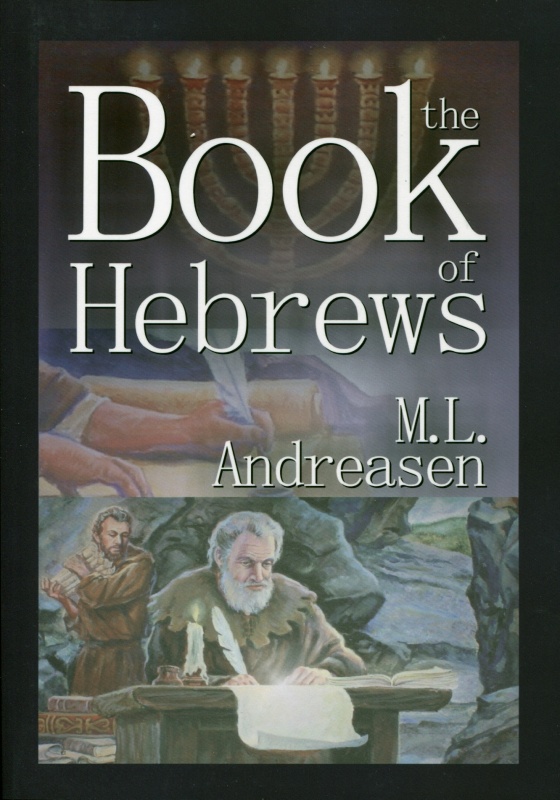















































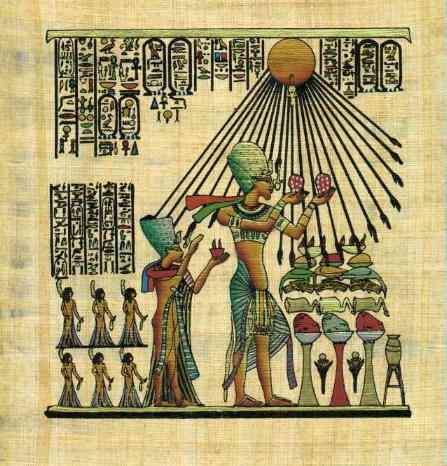



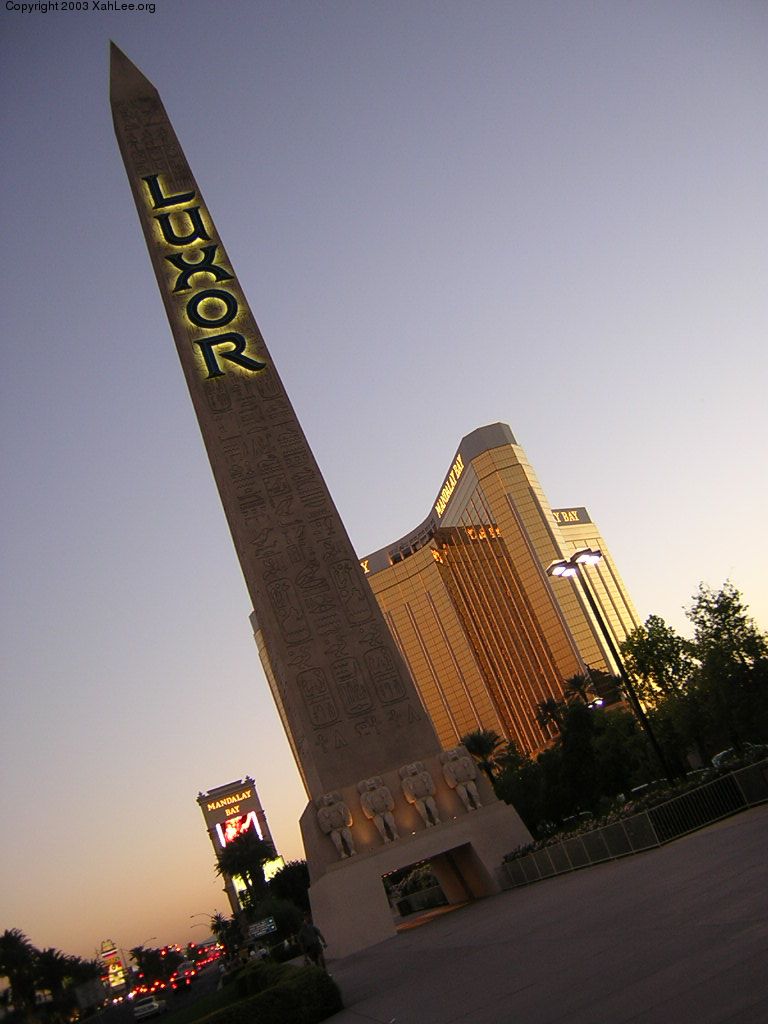







 What Would the Greys Say?? Fisk Organ-Builders might have to be transported (drugged and blindfolded) to Ida to install the new pipe-organ in a Rear Balcony!! Then, imagine said temple filled with 10,000 Humans, Dracs, Greys, and Annunaki -- laying prostrate before a Draconian-Reptilian Queen!!! I really should STOP!!! But Siriusly -- what if that sort of thing occurs each and every day??!! What if that's what ALL of us will be doing in a few, short years??!! I desire the Best for Humanity -- WITHOUT Siriusly Angering the Hypothetical Reptilian Powers That Be. Do you see my point?? I am a bit irreverent and flippant in my internet posting -- but I have NEVER called for the torture, enslavement, or extermination of ANYONE -- Human or Otherwise. My current bias is that this solar system should be Fundamentally-Human -- but I have never called for a Human-Only Solar System. What if the Asteroid Belt were one of the United States of the Solar System?? Should the Greys get kicked-out of the solar system?? Should the Greys be restricted to the Asteroid Belt?? Should the Asteroid Belt be integrated or segregated?? Should Humans begin moving to the Asteroid Belt??
What Would the Greys Say?? Fisk Organ-Builders might have to be transported (drugged and blindfolded) to Ida to install the new pipe-organ in a Rear Balcony!! Then, imagine said temple filled with 10,000 Humans, Dracs, Greys, and Annunaki -- laying prostrate before a Draconian-Reptilian Queen!!! I really should STOP!!! But Siriusly -- what if that sort of thing occurs each and every day??!! What if that's what ALL of us will be doing in a few, short years??!! I desire the Best for Humanity -- WITHOUT Siriusly Angering the Hypothetical Reptilian Powers That Be. Do you see my point?? I am a bit irreverent and flippant in my internet posting -- but I have NEVER called for the torture, enslavement, or extermination of ANYONE -- Human or Otherwise. My current bias is that this solar system should be Fundamentally-Human -- but I have never called for a Human-Only Solar System. What if the Asteroid Belt were one of the United States of the Solar System?? Should the Greys get kicked-out of the solar system?? Should the Greys be restricted to the Asteroid Belt?? Should the Asteroid Belt be integrated or segregated?? Should Humans begin moving to the Asteroid Belt?? 



































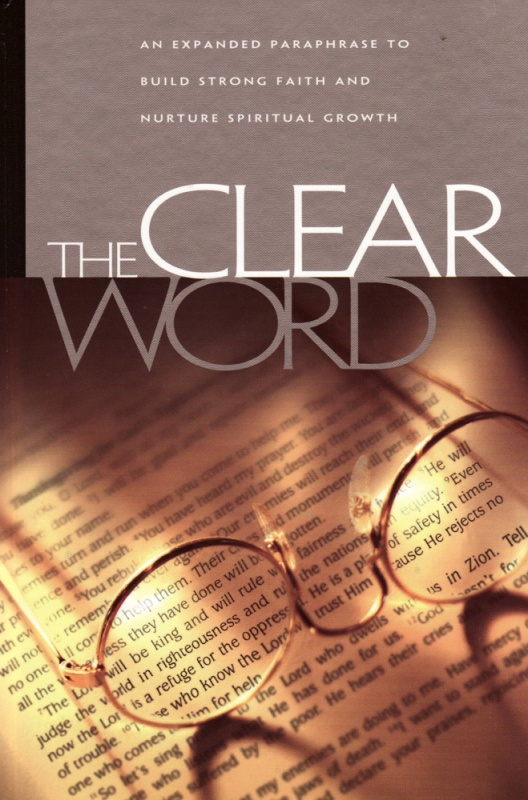
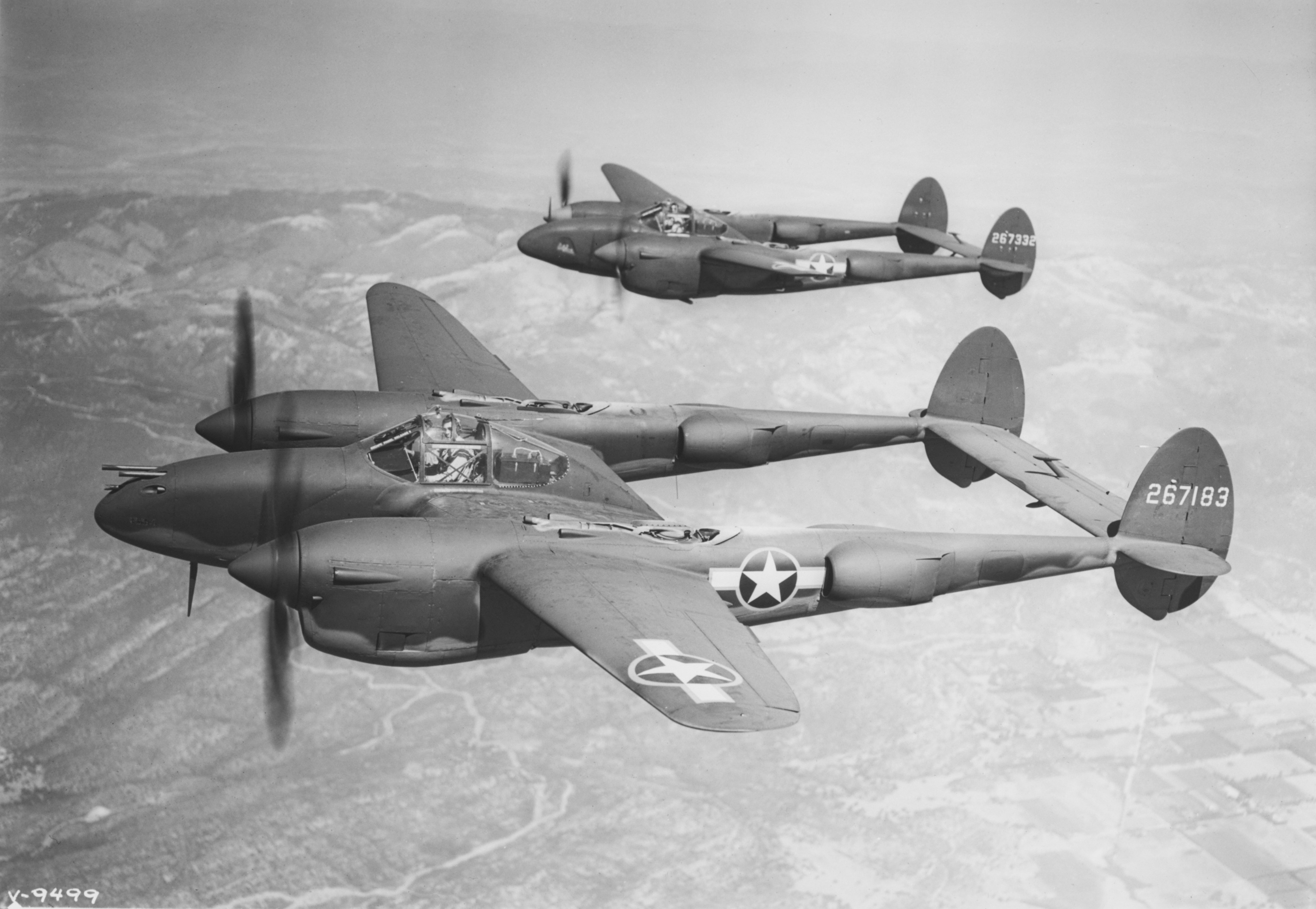








.jpg)




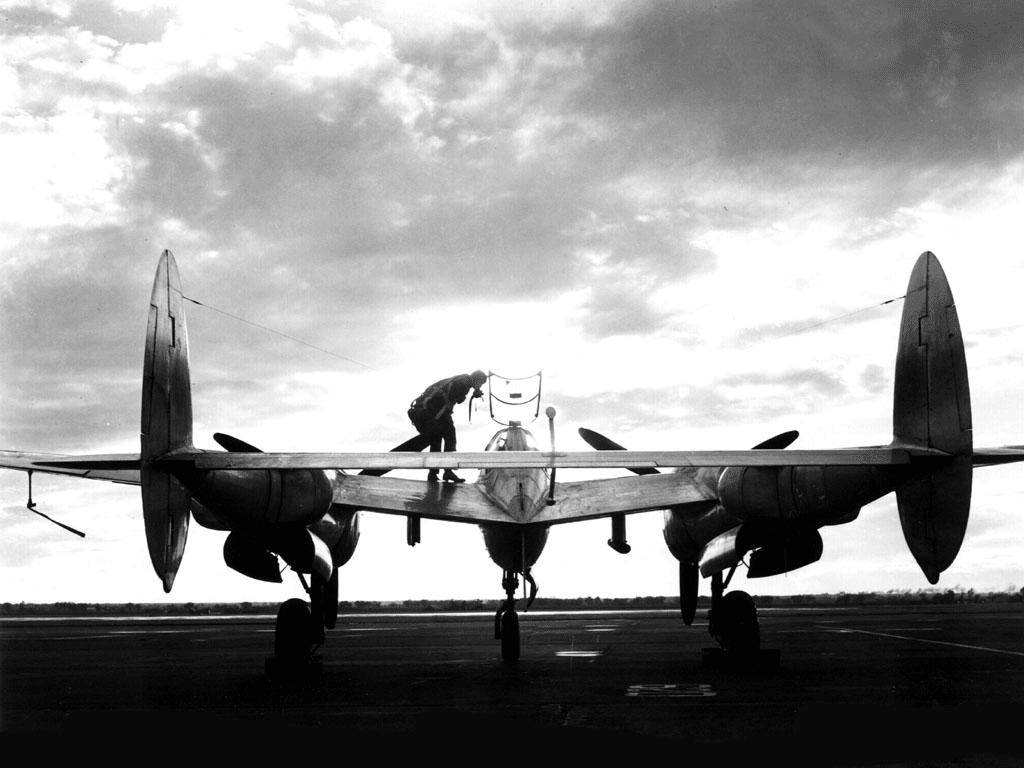

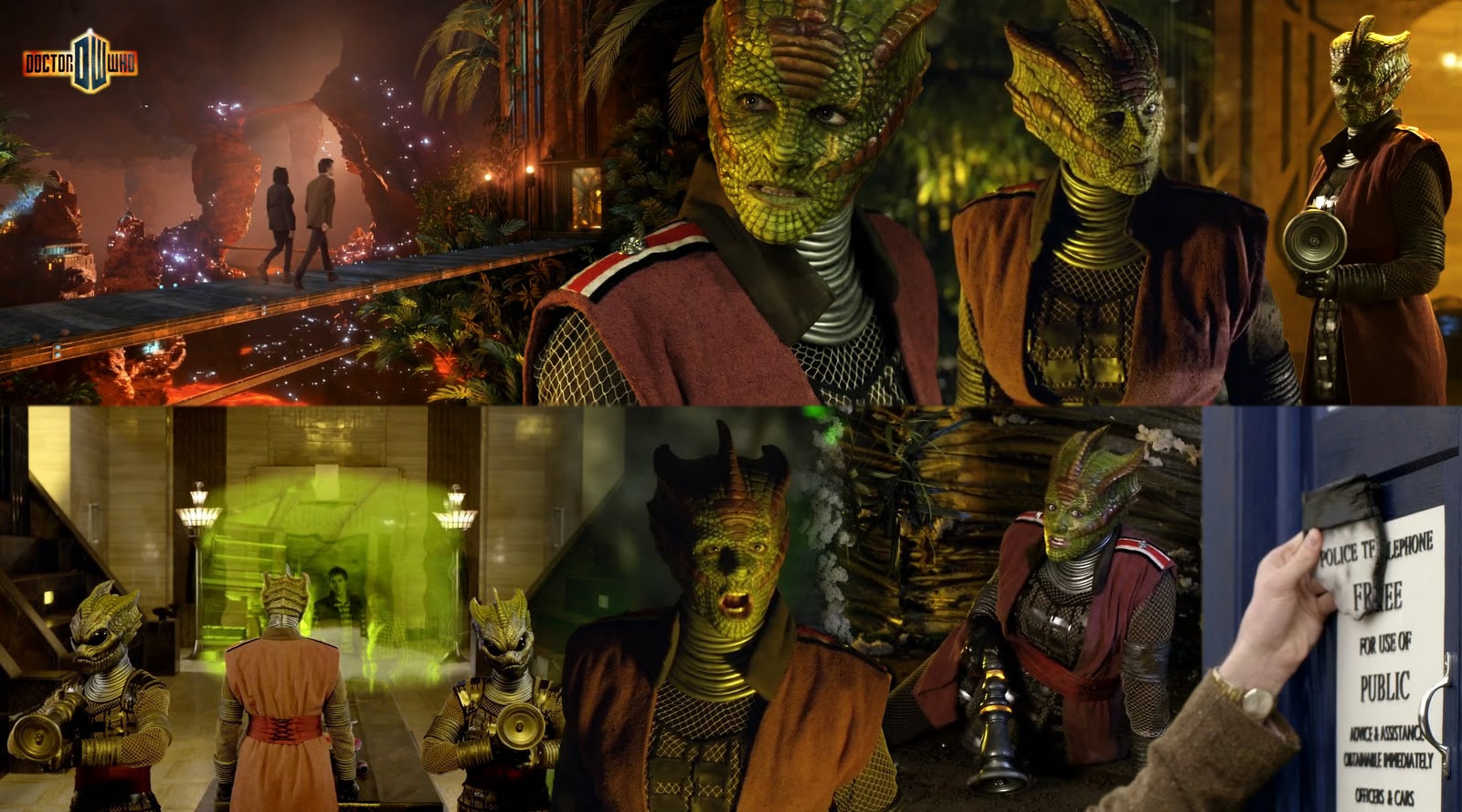













 Lucis Trust.
Lucis Trust. 













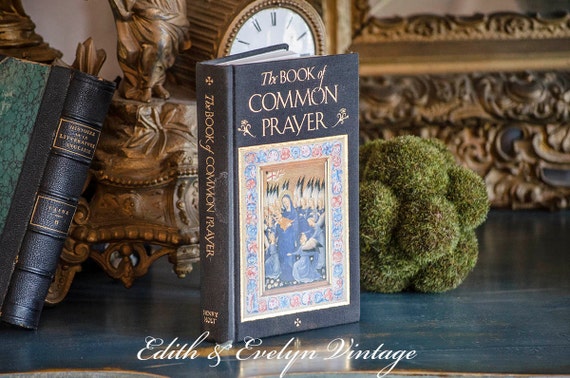














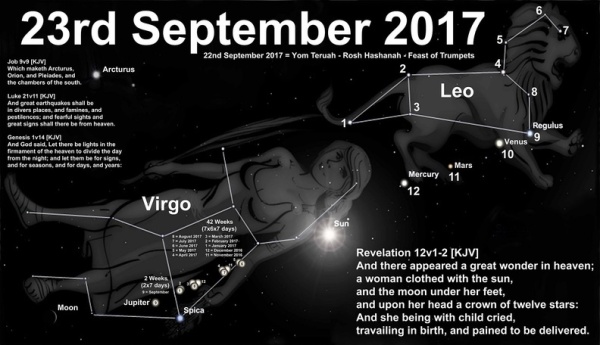








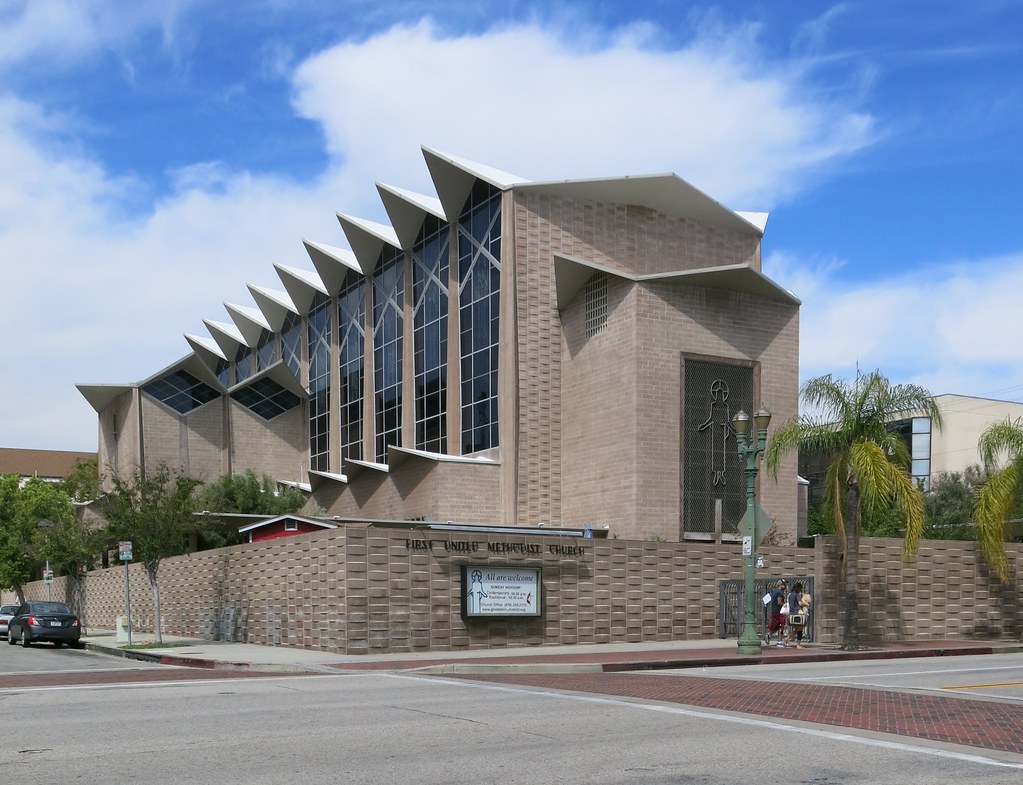


h(600)/af9cf564b52954424dca6dfa8f0ee86e.jpg)





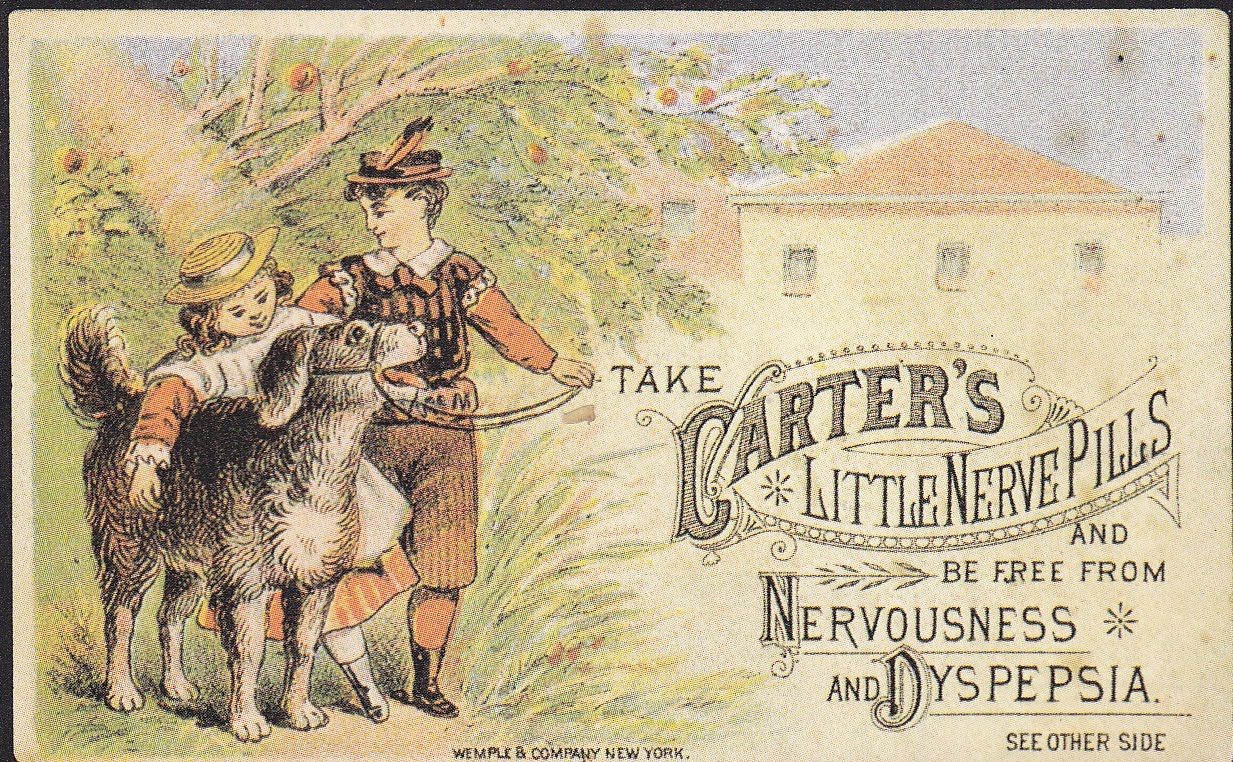





.jpg)

